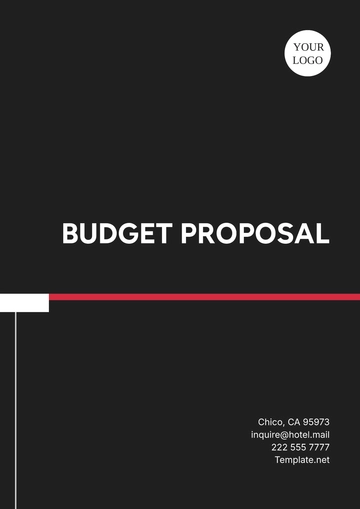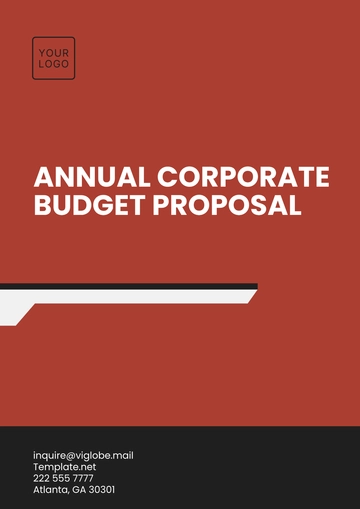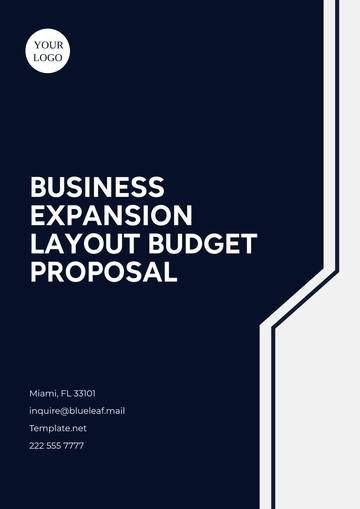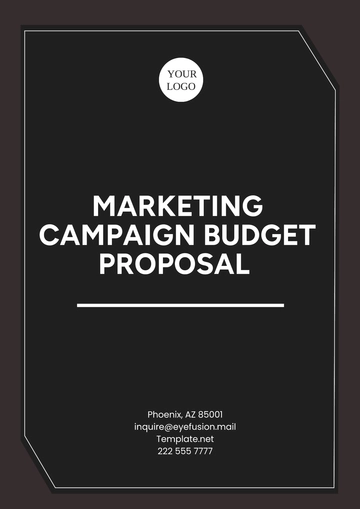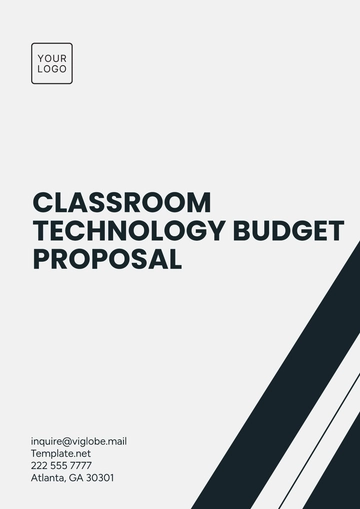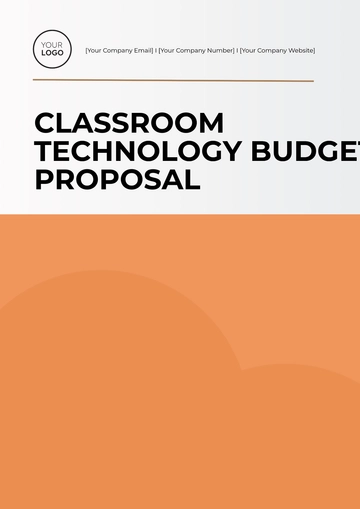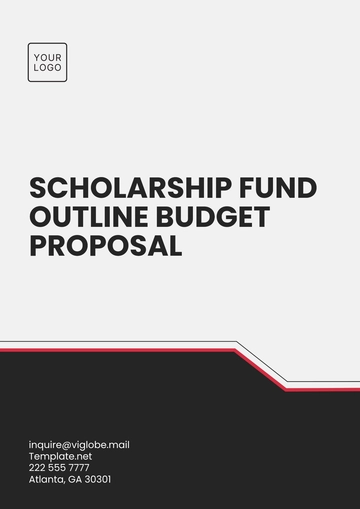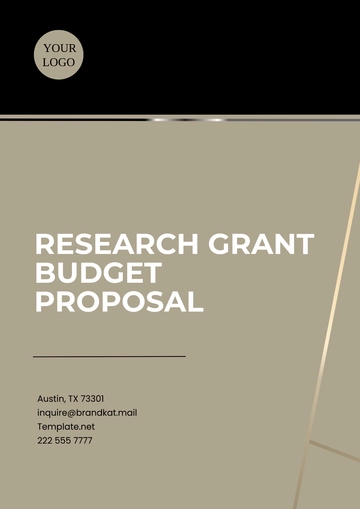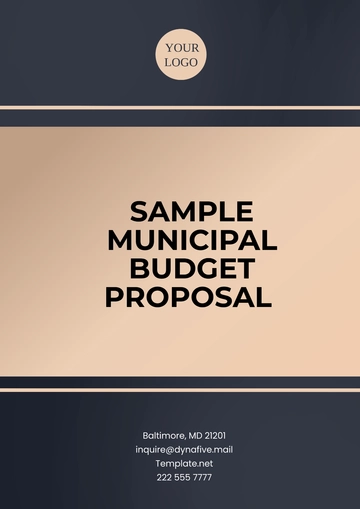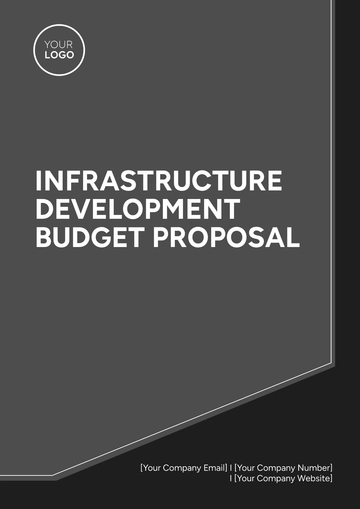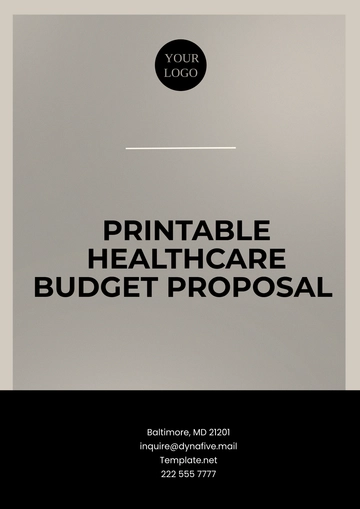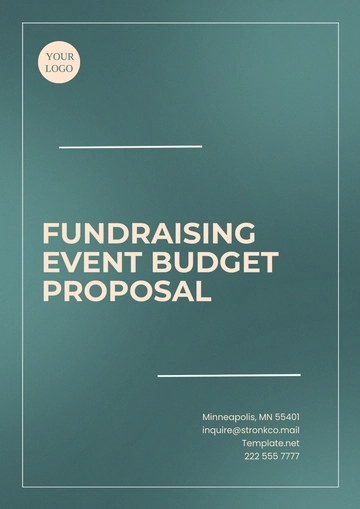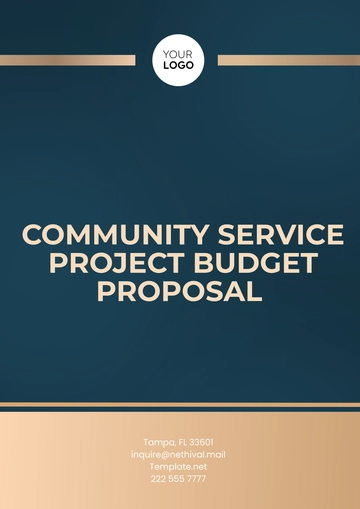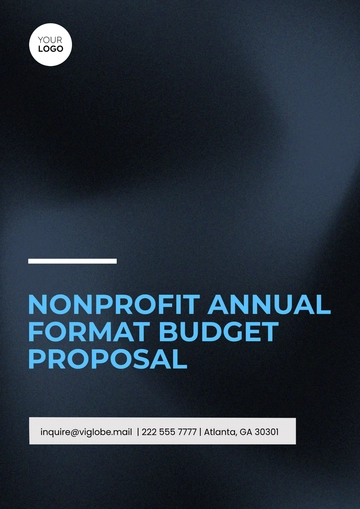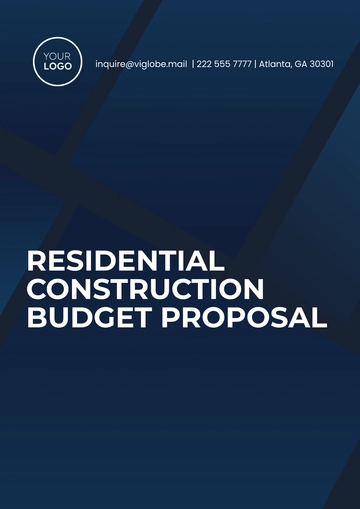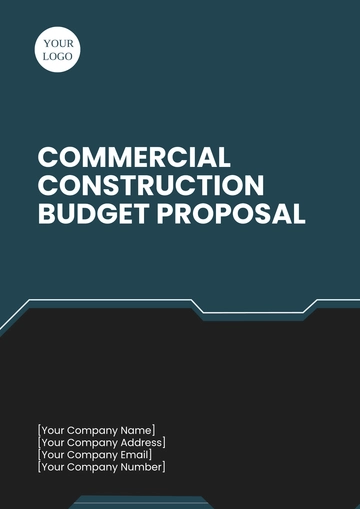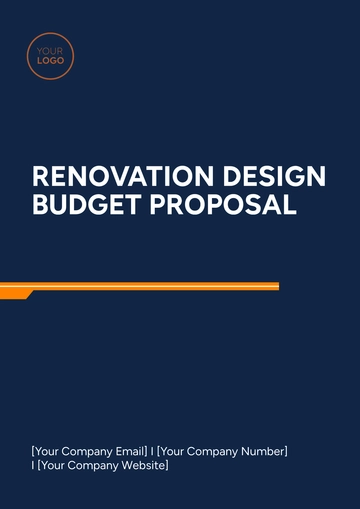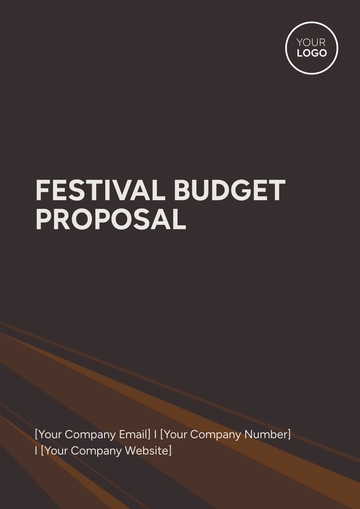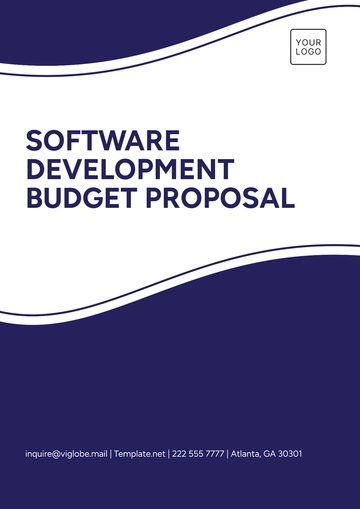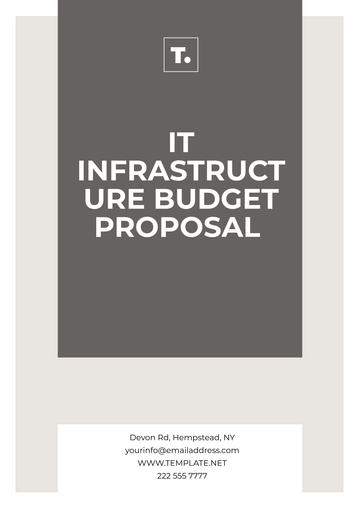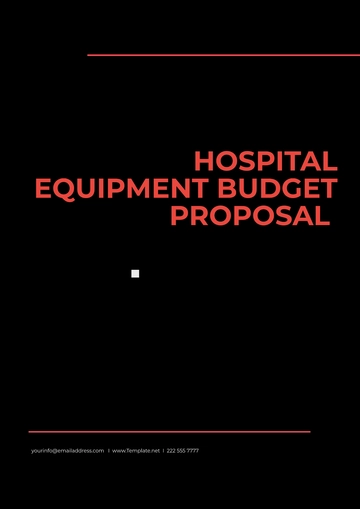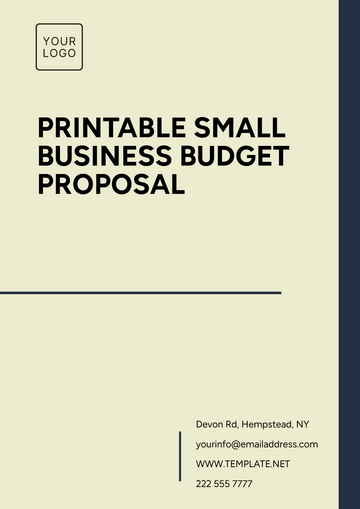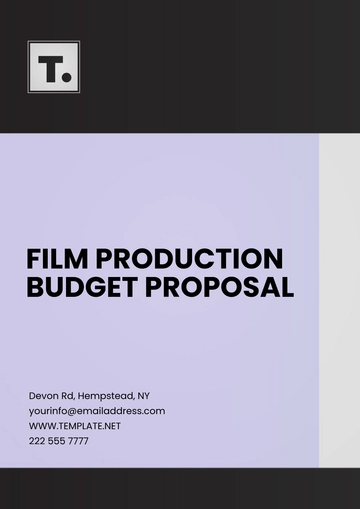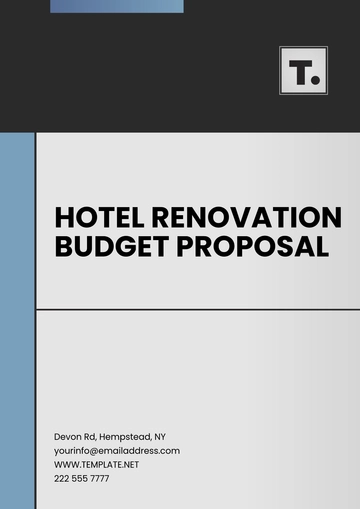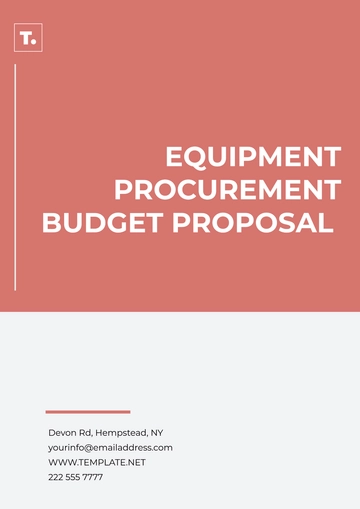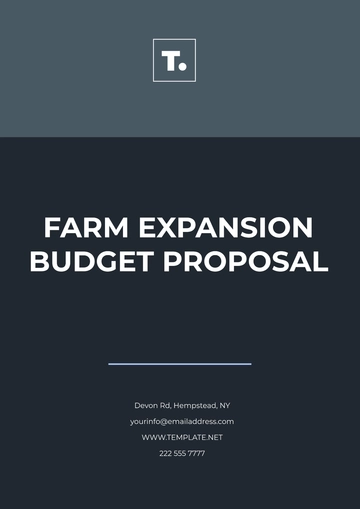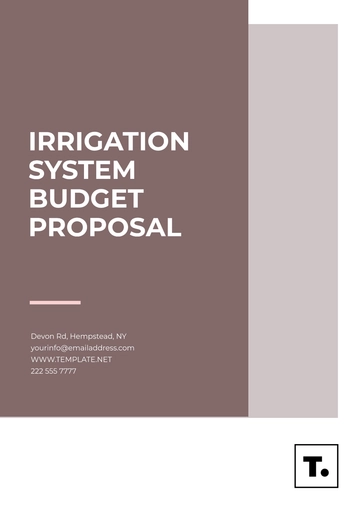Free Sample Municipal Budget Proposal
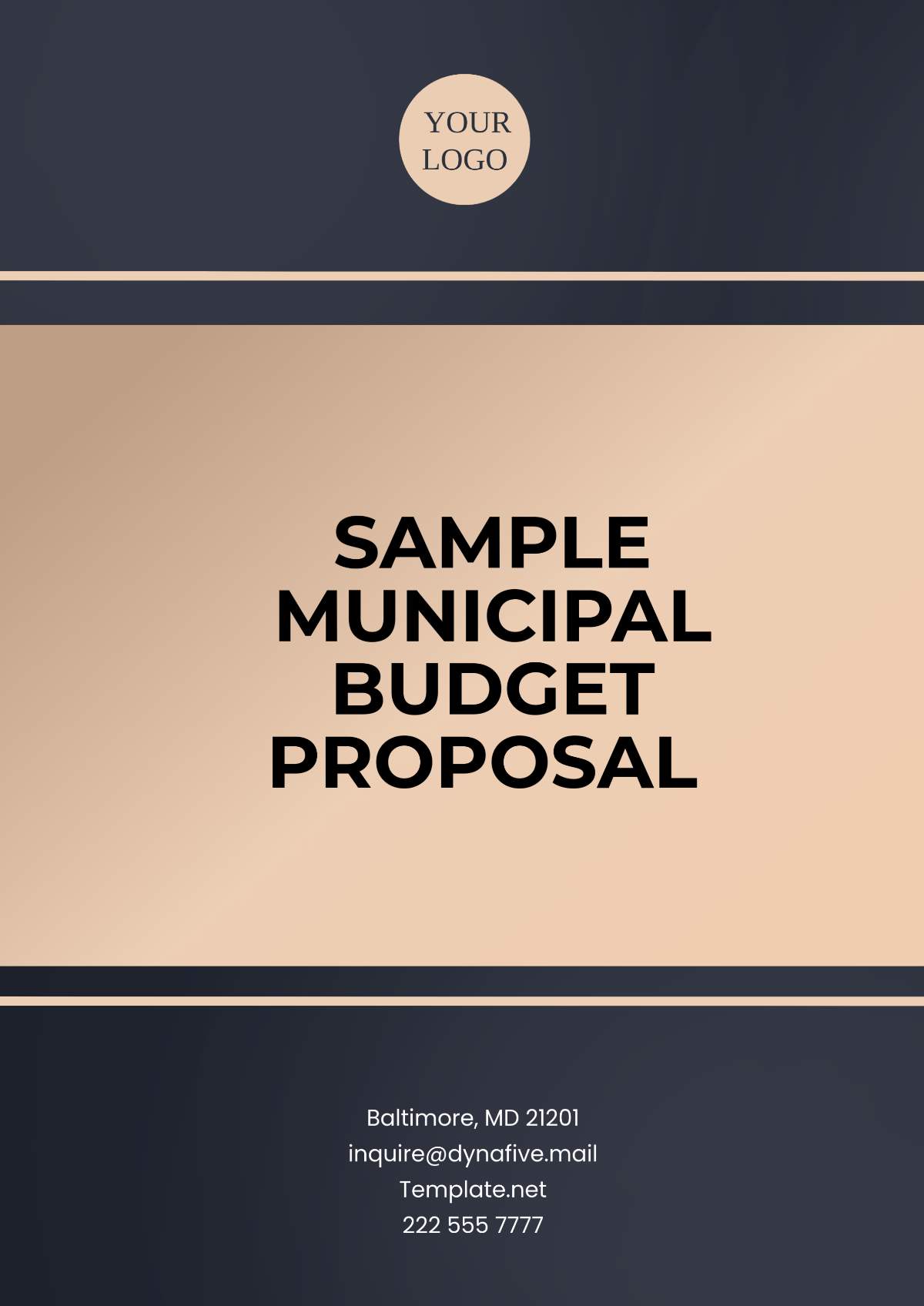
Date: January 9, 2050
Municipal Budget Proposal for Fiscal Year 2050
Presented by [Your Company Name]
1. Executive Summary
This Municipal Budget Proposal for the fiscal year 2050 aims to provide a comprehensive financial blueprint for [City Name]. The focus is on promoting sustainable urban development, enhancing the quality of public services, and addressing critical infrastructure needs. Our commitment to transparency, fiscal responsibility, and community engagement is reflected throughout this budget. This proposal ensures that we not only maintain but also strengthen the city's core values of prosperity, environmental stewardship, and equitable growth.
2. Revenue Projections
The projected revenue for the 2050 fiscal year is based on prudent forecasting and economic analysis, considering both traditional and emerging revenue sources:
Local Taxes: $25 million
This includes property taxes, sales taxes, and local business taxes. A conservative estimate based on a steady growth rate in economic activity across key sectors such as technology, healthcare, and manufacturing.State Funding: $10 million
Expected funds from the state government earmarked for infrastructure projects, educational advancements, and healthcare support. These funds will complement the city’s efforts in upgrading public facilities.Federal Grants: $5 million
Anticipated federal funding, especially directed toward environmental sustainability projects and emergency preparedness initiatives. This will enhance the city’s resilience to climate change and natural disasters.Public-Private Partnerships: $3 million
Investments from public-private partnerships will contribute to various urban renewal projects, especially in housing and renewable energy infrastructure.
3. Expenditure Breakdown:
The proposed expenditures are designed to address both the immediate needs and long-term goals of the city. Each allocation reflects the strategic priorities and the collaborative efforts necessary to meet the demands of a growing population.
Education: $9 million
K-12 Schools: $6 million
Funding for upgrades to classroom facilities, teacher development programs, and increased technological integration within schools to ensure high-quality education for all students.Higher Education and Vocational Training: $2 million
Scholarships, workforce development programs, and partnerships with local universities to foster a skilled workforce for the jobs of tomorrow.Early Childhood Education: $1 million
Expanding preschool programs to ensure every child has the foundation to succeed academically.
Healthcare: $7 million
Public Hospitals and Clinics: $4 million
Investment in the renovation of local healthcare facilities, the purchase of advanced medical equipment, and hiring additional staff to meet the needs of a growing population.Preventative Health Programs: $2 million
Focus on community wellness programs, mental health initiatives, and disease prevention efforts.Healthcare Access for Vulnerable Populations: $1 million
Programs aimed at improving access to healthcare services for low-income and underserved communities.
Infrastructure: $14 million
Road Construction & Maintenance: $6 million
Upgrades to aging infrastructure, new roadways, and expansion of public transit networks to ease traffic congestion and improve connectivity.Public Transportation: $4 million
Investments in expanding bus routes, introducing environmentally friendly electric buses, and modernizing subway lines to provide efficient, affordable transport.Smart City Technology: $4 million
The implementation of smart sensors, traffic management systems, and digital communication infrastructure to improve city efficiency and reduce environmental impact.
Environmental Conservation: $5 million
Renewable Energy Initiatives: $3 million
Development of solar, wind, and geothermal energy sources to power municipal buildings and public infrastructure, reducing dependency on non-renewable energy sources.Urban Green Spaces and Parks: $2 million
Creation and maintenance of public parks, green spaces, and urban forests to enhance air quality, provide recreational areas, and improve the well-being of residents.
4. Capital Projects and Long-Term Investments
This budget proposal also includes allocations for significant capital projects that will shape the future of [City Name]:
Affordable Housing: $8 million
Development of mixed-income housing to address the rising demand for affordable housing. This project will provide safe and quality living spaces for low- and middle-income families.Public Safety and Emergency Services: $5 million
Upgrades to fire departments, police stations, and emergency services to improve response times and ensure public safety. This includes the modernization of communication systems and investment in first responder training.
5. Conclusion
The 2050 Municipal Budget is an ambitious and forward-thinking proposal that seeks to invest in the city's future while ensuring financial responsibility and long-term sustainability. By aligning our spending priorities with the needs of the community, we aim to create a vibrant, equitable, and resilient city for future generations. The proposal reflects a strong commitment to improving public services, fostering economic growth, and creating a greener, more sustainable environment.
For any questions or further details regarding the proposed budget, please contact [Your Name] at [Your Email].
- 100% Customizable, free editor
- Access 1 Million+ Templates, photo’s & graphics
- Download or share as a template
- Click and replace photos, graphics, text, backgrounds
- Resize, crop, AI write & more
- Access advanced editor
Simplify city planning with Template.net's Sample Municipal Budget Proposal Template. Fully customizable and editable, it supports efficient financial allocation. Editable in our Ai Editor Tool, this template provides precision and adaptability for municipal proposals.
You may also like
- Business Proposal
- Research Proposal
- Proposal Request
- Project Proposal
- Grant Proposal
- Photography Proposal
- Job Proposal
- Budget Proposal
- Marketing Proposal
- Branding Proposal
- Advertising Proposal
- Sales Proposal
- Startup Proposal
- Event Proposal
- Creative Proposal
- Restaurant Proposal
- Blank Proposal
- One Page Proposal
- Proposal Report
- IT Proposal
- Non Profit Proposal
- Training Proposal
- Construction Proposal
- School Proposal
- Cleaning Proposal
- Contract Proposal
- HR Proposal
- Travel Agency Proposal
- Small Business Proposal
- Investment Proposal
- Bid Proposal
- Retail Business Proposal
- Sponsorship Proposal
- Academic Proposal
- Partnership Proposal
- Work Proposal
- Agency Proposal
- University Proposal
- Accounting Proposal
- Real Estate Proposal
- Hotel Proposal
- Product Proposal
- Advertising Agency Proposal
- Development Proposal
- Loan Proposal
- Website Proposal
- Nursing Home Proposal
- Financial Proposal
- Salon Proposal
- Freelancer Proposal
- Funding Proposal
- Work from Home Proposal
- Company Proposal
- Consulting Proposal
- Educational Proposal
- Construction Bid Proposal
- Interior Design Proposal
- New Product Proposal
- Sports Proposal
- Corporate Proposal
- Food Proposal
- Property Proposal
- Maintenance Proposal
- Purchase Proposal
- Rental Proposal
- Recruitment Proposal
- Social Media Proposal
- Travel Proposal
- Trip Proposal
- Software Proposal
- Conference Proposal
- Graphic Design Proposal
- Law Firm Proposal
- Medical Proposal
- Music Proposal
- Pricing Proposal
- SEO Proposal
- Strategy Proposal
- Technical Proposal
- Coaching Proposal
- Ecommerce Proposal
- Fundraising Proposal
- Landscaping Proposal
- Charity Proposal
- Contractor Proposal
- Exhibition Proposal
- Art Proposal
- Mobile Proposal
- Equipment Proposal
- Student Proposal
- Engineering Proposal
- Business Proposal
